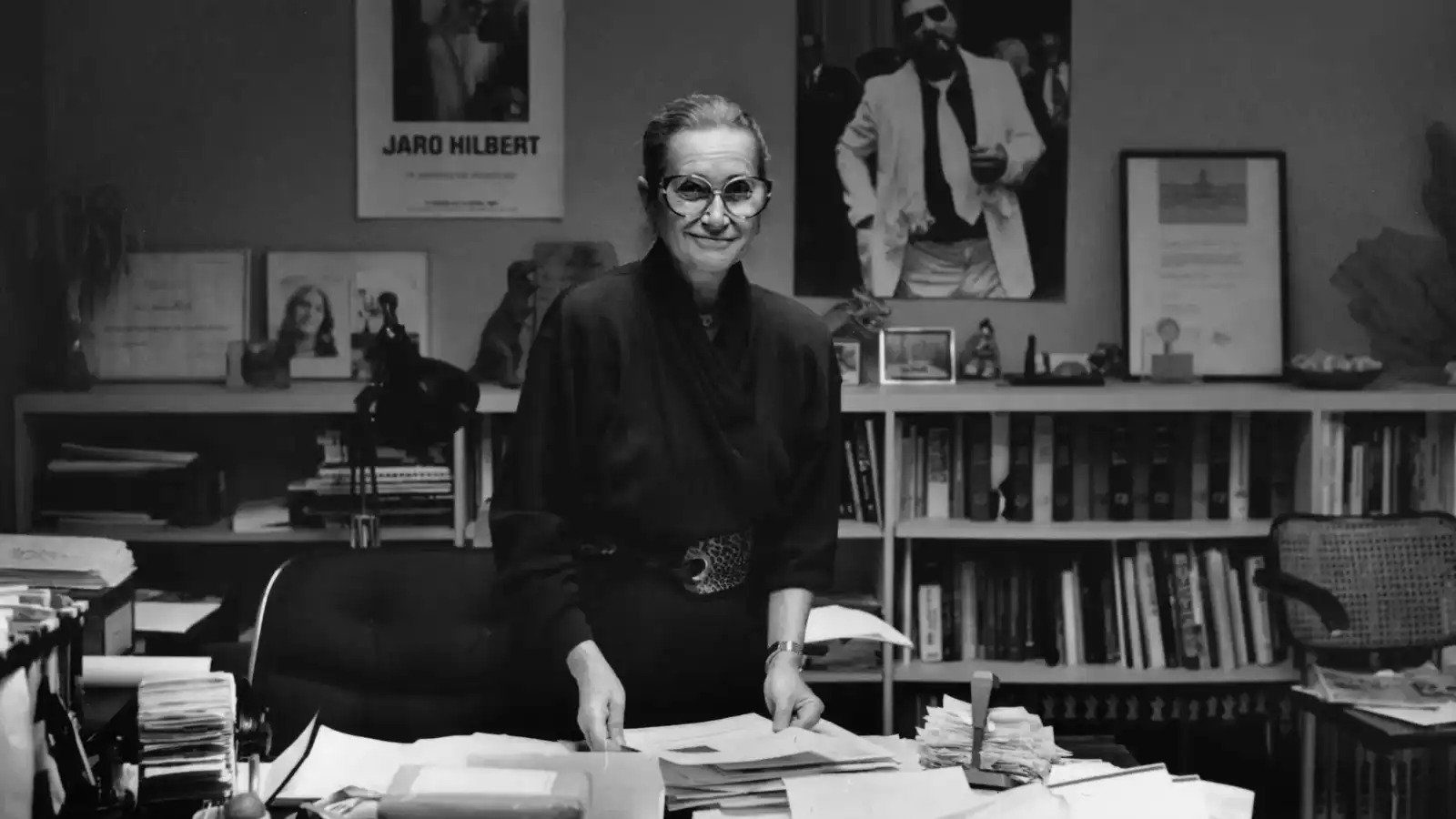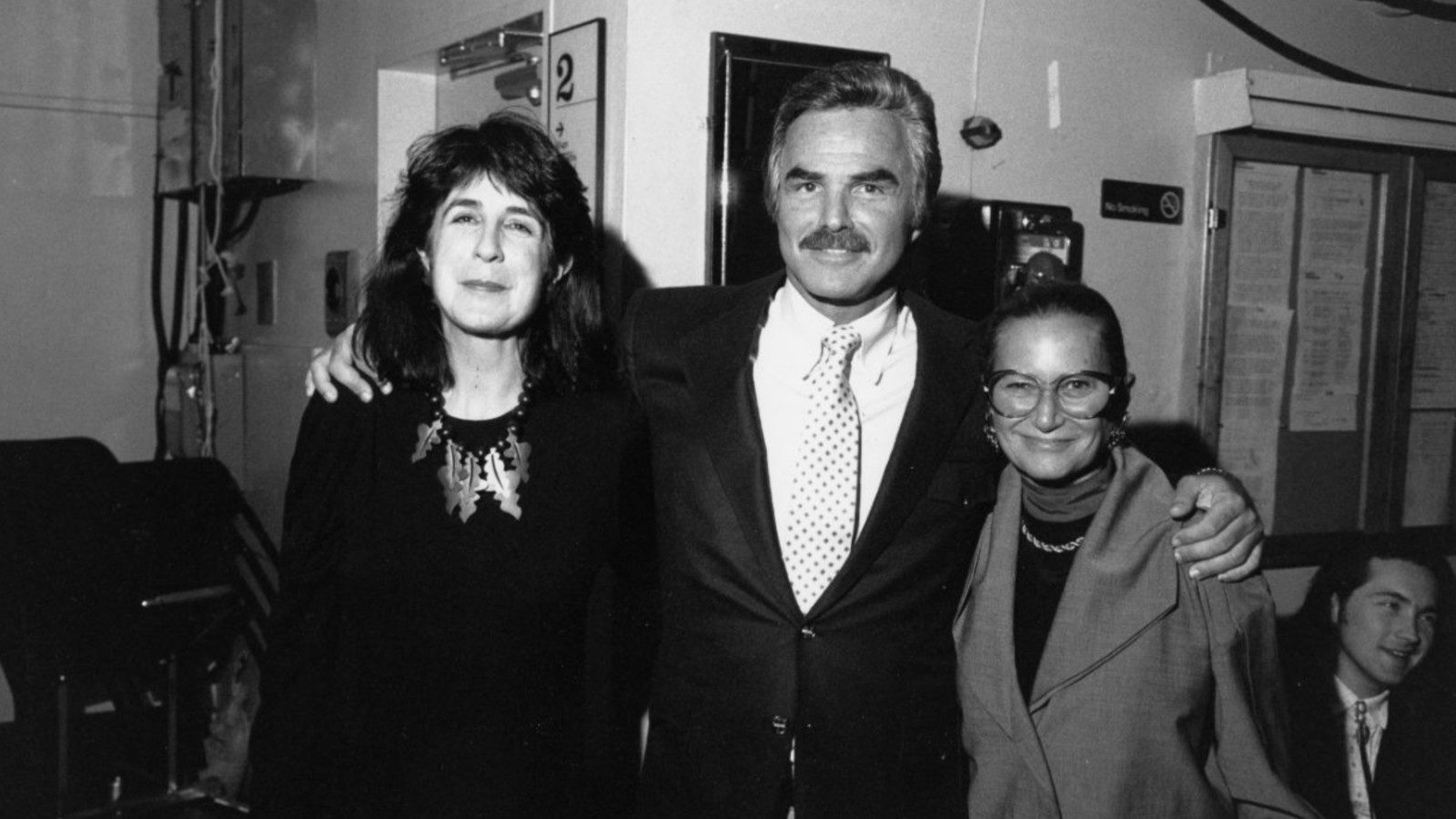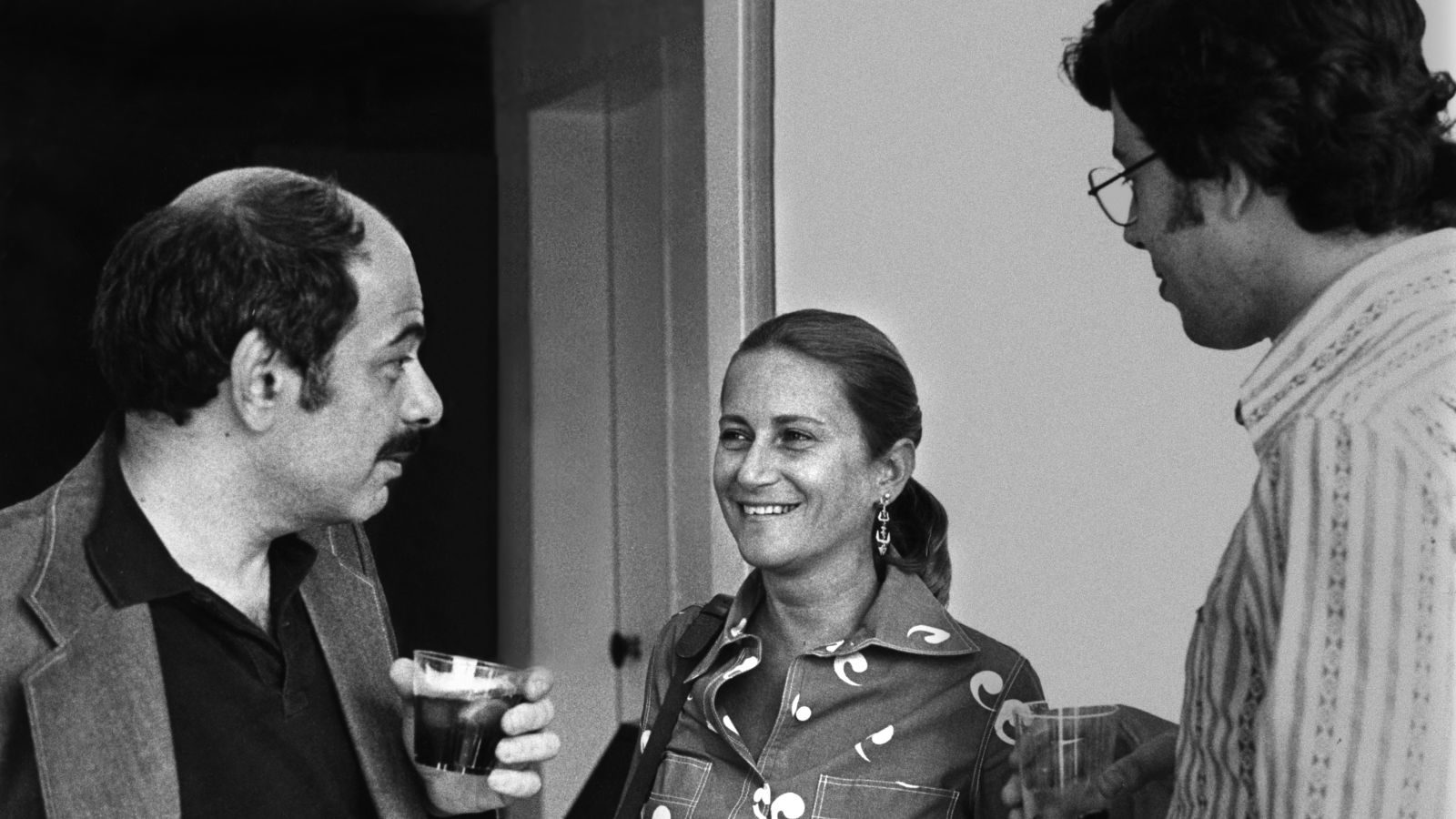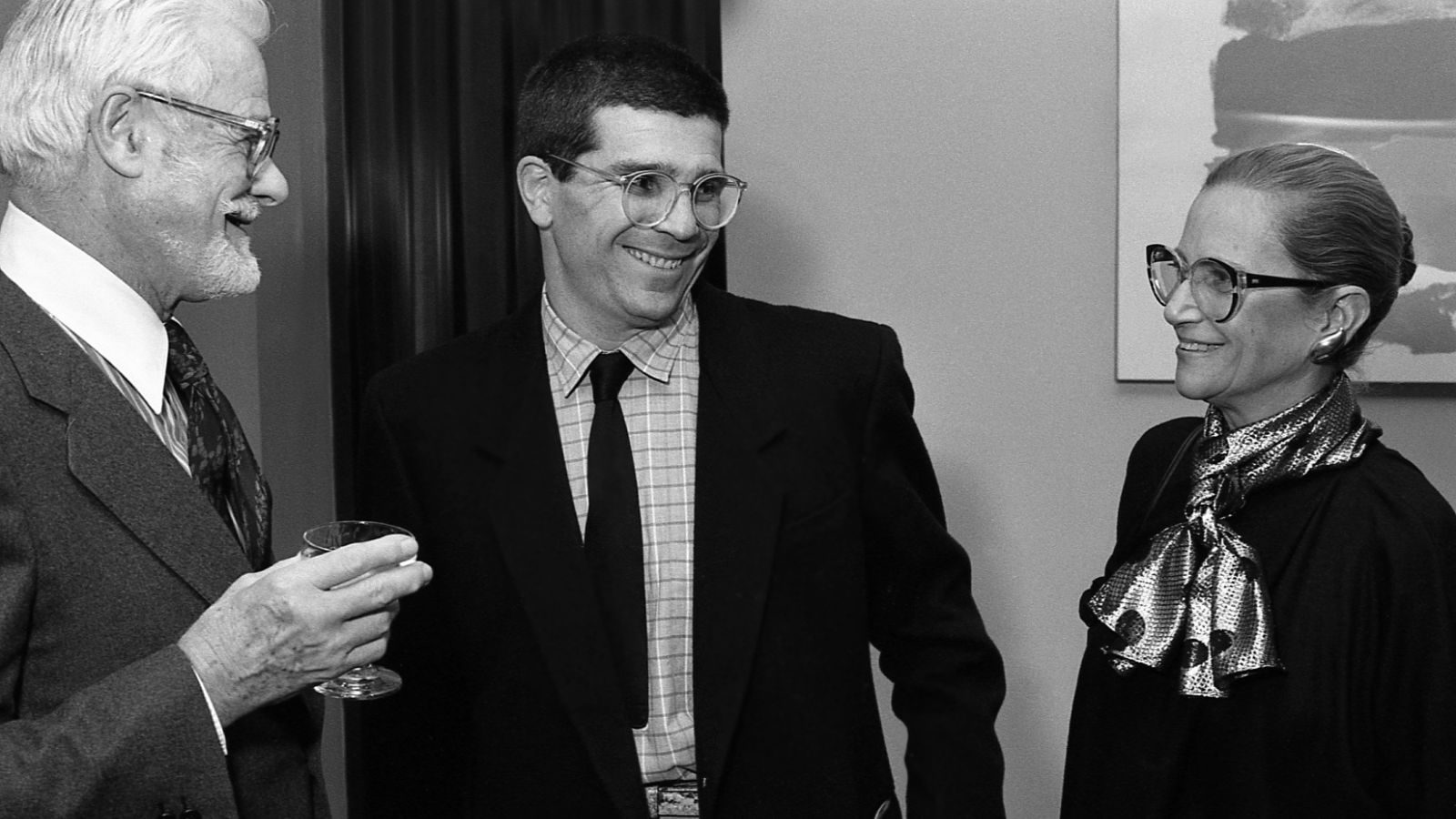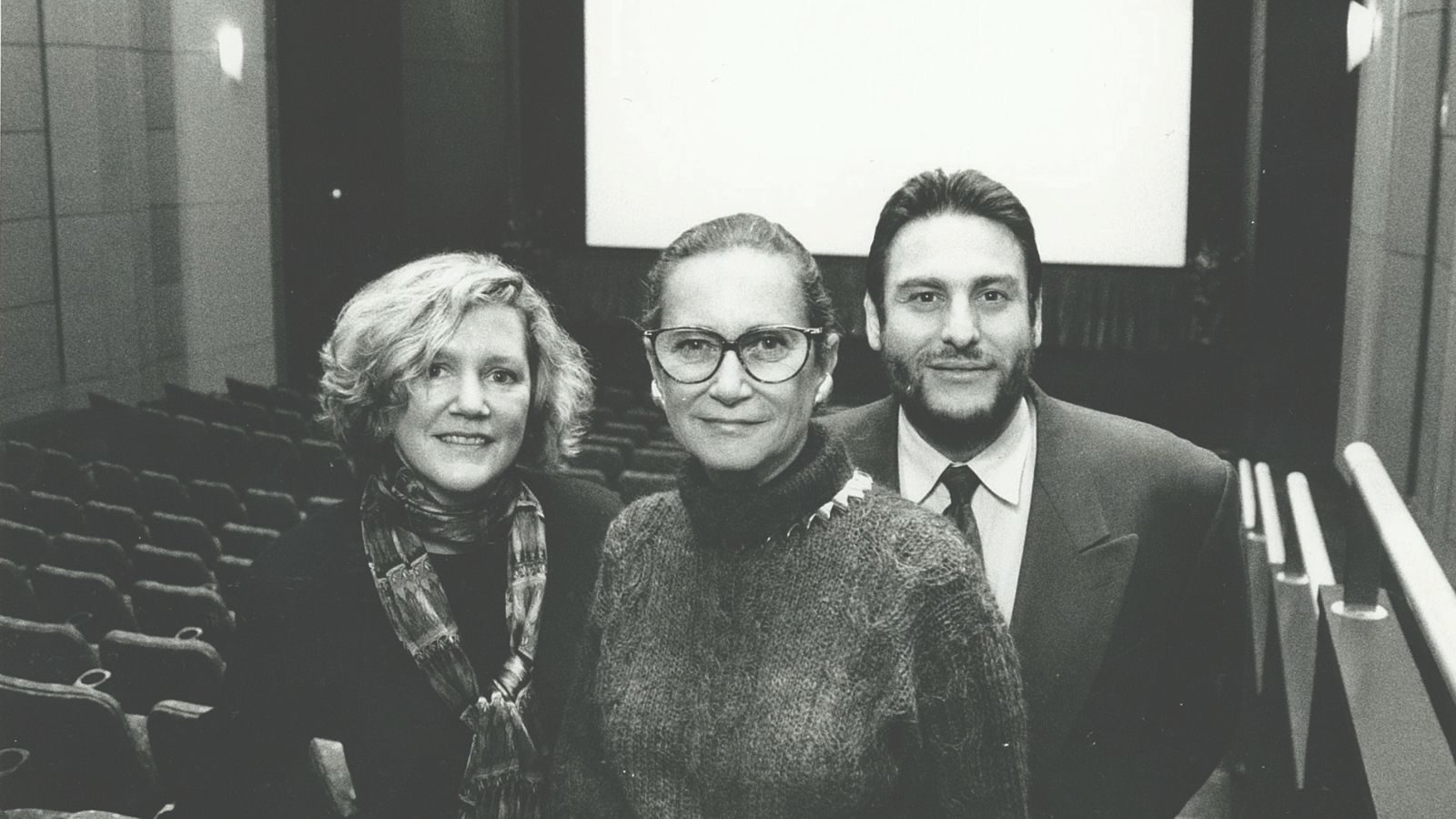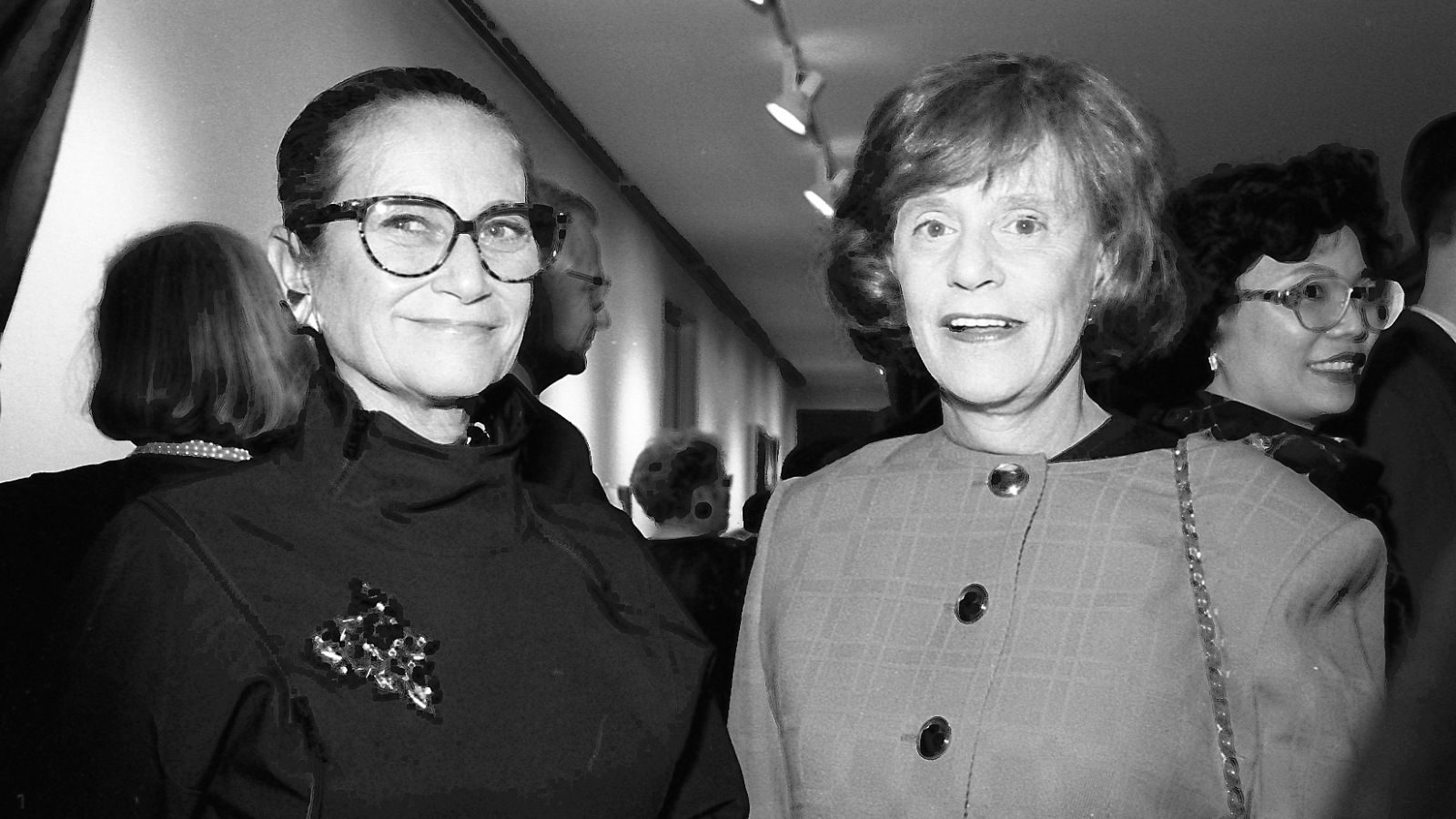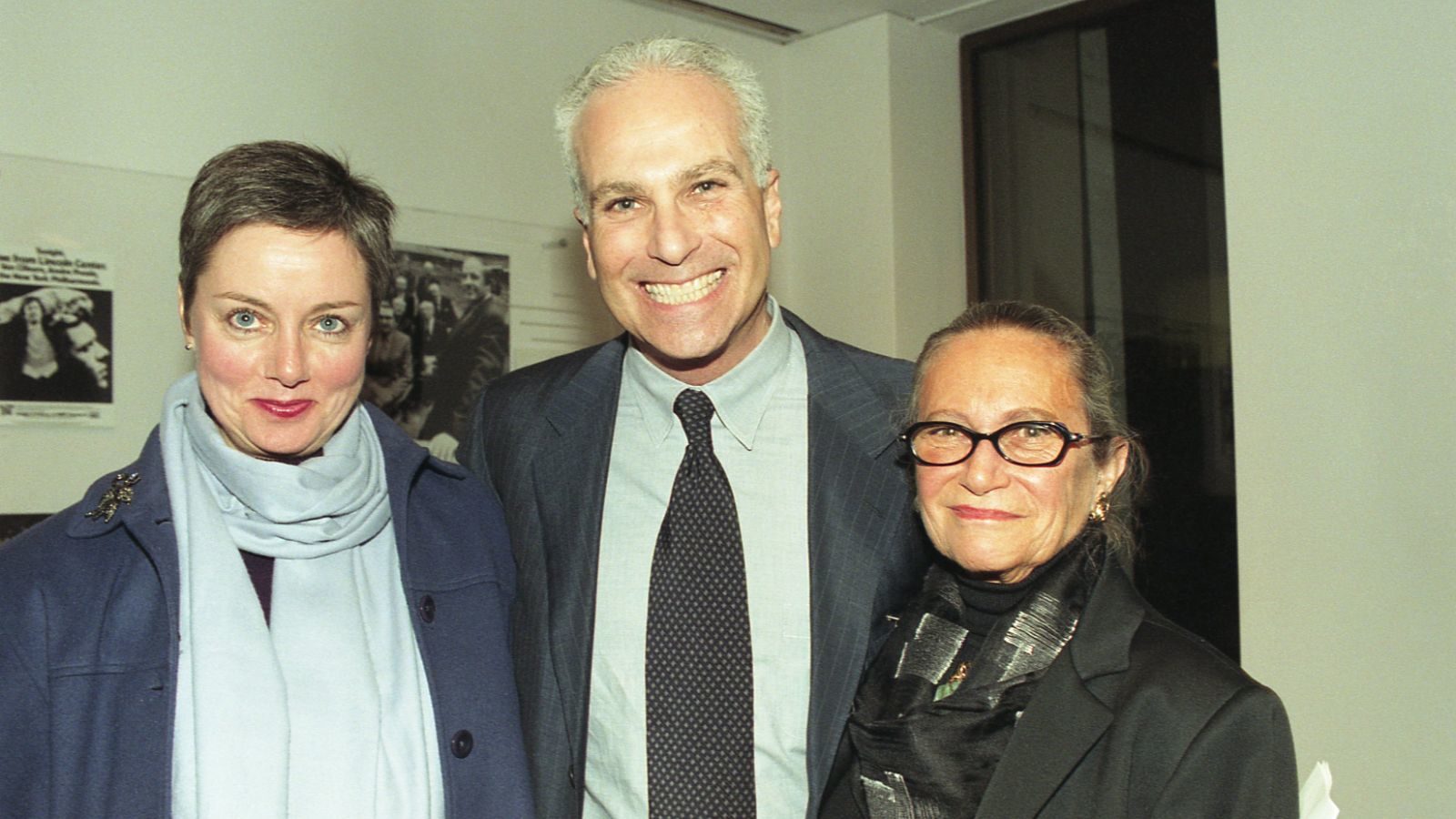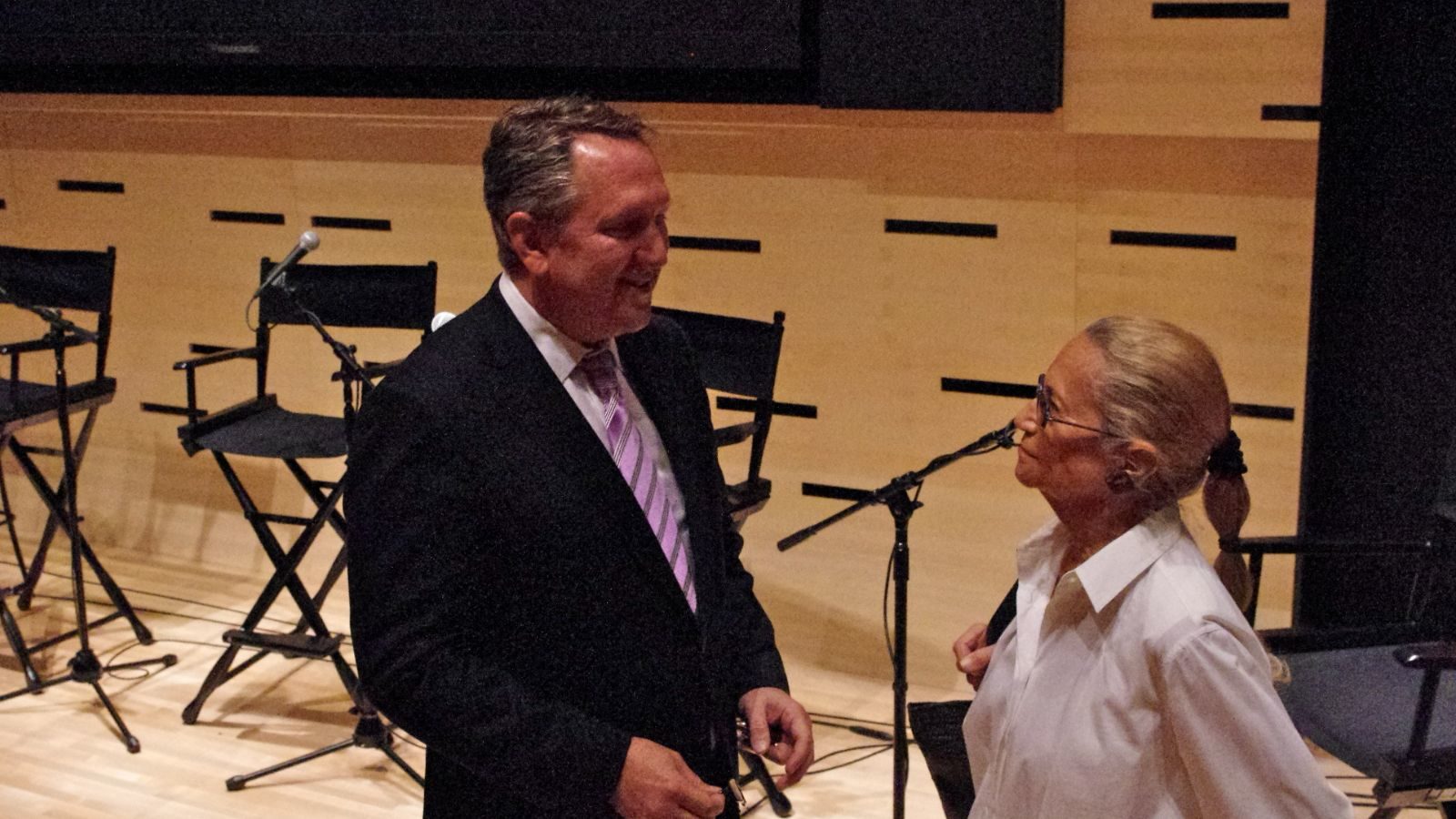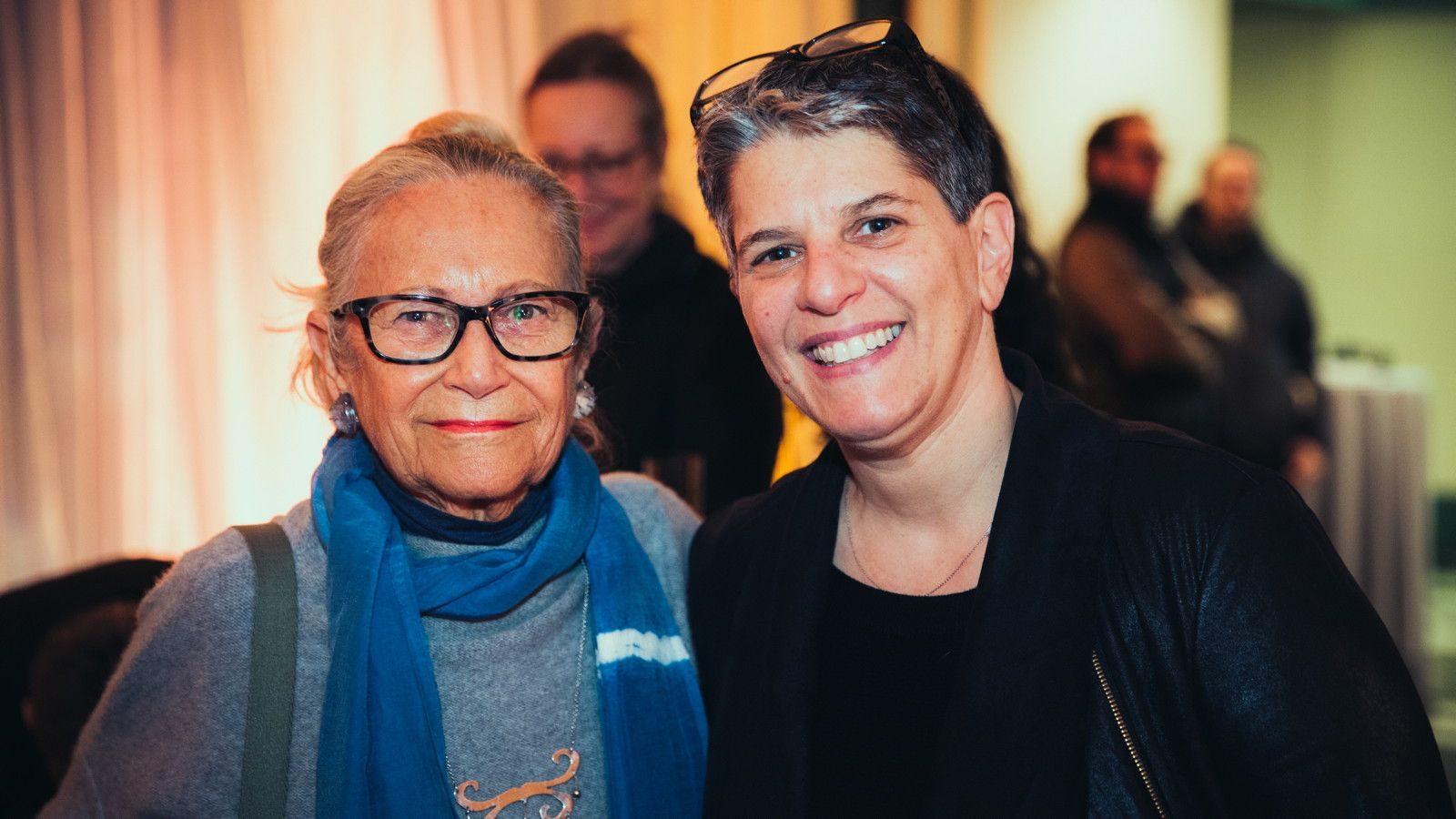Joanne Koch came to the Film Society of Lincoln Center as a freelancer in 1971 to program the series Movies in the Parks and quickly became an administrator, moving up to the role of Executive Director in 1977. She spent over three decades creating and shaping what is now Film at Lincoln Center (FLC) and the New York Film Festival (NYFF), serving as FLC’s Executive Director from 1977 to 2003 and Project Director of the Elinor Bunin Munroe Film Center (EBM) through 2008. She sat on the FLC Board of Directors from 2009 until her passing.
Alongside the first director of the NYFF, Richard Roud, and Willard Van Dyke, director of the MoMA film department from 1965 to 1972, Joanne conceptualized and created New Directors/New Films (ND/NF), a festival dedicated to presenting new works from emerging directors. Launched in 1972, the festival was designed to be run in collaboration with the MoMA, a partnership that continues to this day. Joanne programmed ND/NF for many years, representing FLC.
In 1972, the first Chaplin Gala was held; it was a star-studded event the likes of which were previously unfamiliar to the Film Society (Charlie Chaplin, Fred Astaire, and Alfred Hitchcock were the first three honorees). Also in 1972, FLC began overseeing and publishing Film Comment, a print publication that supported film commentary and criticism, with editorial insight independent of FLC.
Joanne also spearheaded the building of the Walter Reade Theater (WRT), which opened in 1991. The first film exhibition space on the Lincoln Center campus, the theater enabled the Film Society to run year-round programming. Then, in 2011, Joanne oversaw the development and completion of the EBM, doubling the amount of space available for FLC programming.
Joanne worked to make it possible for programmers to present the films they were interested in screening, despite threats of censorship, protective business interests, and pushback from religious groups. Joanne also made it her mission to champion the FLC staff, a group of employees she saw as exemplary in their commitment to the organization and to the artform.
FLC was proud to host a recent celebration of her life, featuring remembrances from Wendy Keys, Michael Barker, Richard Peña, Marian Masone and Joanne’s family members Benjamin Gulla, Eliza Koch, Charlie Koch, Nicholas Koch, and Andrea Godbout. Watch the memorial, held at Walter Reade Theater, below and please take a moment to read some of the remembrances for Joanne to learn more about the extraordinary impact she had on FLC audiences and film culture worldwide. If you would like to share your personal memories of Joanne, we encourage you to do so here.
Laura Kern, former Film Comment Managing Editor:
Before I met Joanne Koch, I knew of her only by reputation, a petite figure with an almost larger-than-life mystique. We were connected by the Film Society, where I joined the staff of Film Comment a year after she ended her 32-year tenure. I’d heard many stories from a close mutual friend and other colleagues, who had nothing but respectful words. By the time I finally had the pleasure of making her acquaintance one afternoon in the Film Society offices, I felt like I’d known her for years. But I never could have imagined that I would soon be lucky enough to call her an esteemed collaborator and a friend.
Not one to spend her retirement idly, Joanne had been putting together a history of the New York Film Festival as it approached its 50th year, and I was brought on to help out. For a whirlwind six months we threw ourselves into the production of the book New York Film Festival Gold. The history of the festival was a huge part of her makeup and documenting it for permanent record was both a vivid walk down memory lane and a dream come true. As deadlines beat down on us, we did sometimes butt heads, but our arguments were almost comical. We were both stubborn as mules but shared a passion for doing things “right” and always quickly remembered we were fighting the same battle.
After we finished the book, the bond we had developed remained unbroken. We would stay in touch through e-mail and meet for occasional dinners at one of her favorite local spots sharing yummy vodka cocktails and her beloved crispy artichokes. Joanne was treated like visiting royalty and I always felt proud to be her dinner companion. Friendship transcends age and I had just as much fun gossiping and giggling with her as with my pals closer in years. But she was also something of a grandmother figure—she reminded me so much of my own: super-stylish, resolutely proud and independent, resistant to ask for help but quietly asking me to take her arm on the sidewalk on a windy day. And during the most difficult moments in my professional career, Joanne was always willing to jump up and help. She was a caring, staunch, supporter there for you and ready for action, not to mention whip-smart and wickedly funny.
Joanne also of course loved the movies. She initially served as a programmer before moving up in the ranks to Executive Director and was one of the instrumental figures in bringing Film Comment to the Film Society, acting as its publisher during its early years. We mourned the gradual demise of the print publication together. But while she was clearly a devoted career woman, it was Joanne’s love for family that drove her. She missed her husband Dick intensely, often stressing to me that finding your other half was the most important thing in life.
When COVID hit, Joanne tried to get me to come over and keep her company during lockdown, but needless to say I had to stay away—a difficult decision that I sometimes regret. I did get one final lunch with her last summer, alongside a couple other friends. Her health was clearly deteriorating, but she still made every effort to be the consummate host that she was. She made frequent wisecracks about death. Those were jokes we couldn’t laugh at. While she may have been content with the idea of moving on, the people who loved her were not, would never be… I wish that I had worked under her, that I had known her longer and better, as many of the people attending this celebration of her life have, but I will forever treasure the time I was given. She was a total badass and there will never be another like her.
Harlan Jacobson, former Film Comment Editor-in-Chief:
Joanne Koch was my boss. After the other bosses I had, men bosses all, Joanne was one of two who saw empathy as part of the necessary skill set. She made all the hard decisions of leadership and carried them through in four dimensions — the three we see and through which we move and the fourth we feel.
When she hired me first as senior editor of Film Comment, she didn’t fill a position that had been cleanly vacated. Rather, she added me into a room that had a ghost. I coped with the problem, effectively functioning as editor, until she later came to understand the consequences of having a ghost and reconciled the job’s responsibilities with the requisite title and authority. She did it in stages, hoping for change. Hiring the way she did, out of an orientation that was familial not organizational, was Joanne’s great weakness and her strength, emanating from a good heart, a mother’s heart. She wanted the ghosts to have their place at the table. She was disappointed when the living and the departed differently viewed the world and the clock that ran it. She had a mantra for unintended consequences, however: “No good deed goes unpunished.” Which should’ve been in needlepoint on her couch pillow.
Joanne let me take flight creatively and intellectually. She opened the door for me to take the next big step to see the world on film and the bazaars of selling it. By Joanne’s hand I went to Cannes first and foremost, then Utah, W. Germany, Canada, Brazil, New Zealand and ultimately much of the wider world. Through Joanne, I moved onto a bigger plane than I had ever imagined for myself, to see the film the world created and the world that film chased, to be as big as I could be.
But not one cent bigger. That first time I went to Cannes, Joanne included me in the Film Society’s block of rooms at the Hotel Splendid, the petite white palace that occupies precious real estate across from the Grand Palais and which in film terms is like getting a room next to the Lincoln bedroom at the other White House. My stipend that year was $1500. The Splendid took $1100. Airfare was $400. See how the math on that works. Eating was your prerogative wherever you were. Joanne had opened the door to a new world. Joanne did that for me. It was my responsibility to eat.
My arc goes from a ranch house in Toledo Ohio, through a Mr. Chips in a privileged school and later a great first boss who gave me my start in the Chicago Bureau of Variety. The best job I ever had, which synthesized all my talents, was falling stoned into 8-foot-high bins of cotton all night on a kibbutz in Israel. But working with Joanne, I reached my highest point: Floating across Manhattan in a black town car with Tony Curtis and his Vegas style plus-one, in New York to testify at the Film Society’s spring gala for Sir Laurence Olivier, with whom he’d had exactly one rather suggestive scene in Spartacus in 1960. Tony—I was now on a first name basis, chained to the Defiant One for the evening – Tony asked me, (from Toledo, Ohio), very quietly in the town car could I speak to whoever was the boss of this outfit (Joanne) about getting him a blowout like this, too?
When I saw Olivier in the Green Room shortly thereafter, and privately assessed his chances of living through the evening as way less than half, I thought Tony might get impressed into service a little sooner than he’d bargained. I forgot that Olivier had played Archie Rice in The Entertainer, however, and had no intentions of missing a crowd. The spotlight hit Olivier’s face, and he shot way past Archie Rice and was Heathcliff. A few days after the event, I told Joanne that Tony liked the show, loved all the love, improbably dug the party, which rivals a tea at the annual Chaucer Scholars Awards, and was ready for his turn. Reply redacted. I think Joanne had seen Tony’s plus one and had decided not happening. I can see her distinctive eye roll in my mind’s eye.
And then, blam. I was gone. At the end of the decade, Joanne fired me. In my view there was a lot wrong with it. But because Joanne was Joanne, I could not hold on to my anger forever. After a period of time, I came to understand that I still loved her. Not like a mother, but as a work mother who did all the things that men do for better and worse, but with a dimensionality they often denied and that she did not.
I always kept this one thing in mind about Joanne.
I was a young father during my time at the Film Society. Once in some quiet moment with her, I asked her how she kept going after her daughter was murdered in Central Park. It was a terrible event, just before my time, a parent’s worst nightmare, in film terms, full Bergman. She accepted my question as honest and appropriate, and answered it. That is as important in understanding who she was as anything she said in reply.
“I had to,” she said. “I did it the way you do it, one step at a time, this one, then the next one, then the one after that. I had Andrea. I went to work.” Whatever else there is to think or say about Joanne, about how she stood her ground for film and free expression (she did), about how she imperfectly managed people who worked imperfectly (we did), about how she partly massaged and partly managed a board of directors who liked having found a side door into Lincoln Center (they did), I have never forgotten that Joanne lost her daughter and put one foot in front of the other. That Joanne was the one she brought to work, who saw and felt the day and the people in it.
In the middle of my time at the Film Society, Joanne fired Richard Roud, the co-founder of the NYFF. This is well known and should not be the elephant in the room. The discussion around it could be, should be both layered and nuanced all these years later, but the Village Voice was having none of it. It put Joanne on the cover and called her The Terminator. It was a signal moment for her and for the Film Society. She was upset, distraught, again I don’t remember her raising her voice, but she was plainly outraged. Being called The Terminator on the cover of the Village Voice is in some circles a rare achievement. Worthy of a picture frame. The question of art vs. bureaucracy would sift itself out.
“It’ll be in my obituary,” she groused. That stopped her and she rolled it over in that laugh of hers. She was always capable of dark humor. That was the Brooklyn in her. As in every two-sided story that has three hundred, the whole affair doubtlessly went down on the side she told herself as Comes with the Territory.
I saw her from time to time in recent years, memorably at the memorial for Dick in 2009, her husband and MOMA lawyer who’d created air rights out of thin air and whom she touchingly showered with love. And I talked to her several times recently to see how she was weathering the Plague. I’m still a little surprised she died. She could be so quietly reasonable. Death had to have heard her out about picking her up on the way back after getting someone else Joanne regarded as a proper son of a bitch who should go first. We could probably both agree on several and share a laugh.
The Terminator indeed made it into her obituary in The Times, but in the shirttail not the lede. (Thanks to the velvet gloves of Wendy Keys.) It’s an obit she earned in a full life, a complex one, a real New York life with all its ricochets, up, down, all around the town with the highest achievements, quiet victories, quotidian miracles, infelicities, indignities and lowest lows. As one to whom it fell to lead, which meant to woo, cajole, trick, confront, maneuver, deliver the bad news, protect her criminal charges, counsel, discharge, and return all to some state of balance, Joanne had the rare courage to be human. And let the talent take the bow.
Please take a moment to read some of the remembrances for Joanne below to learn more about the extraordinary impact she had on FLC audiences and film culture worldwide. If you would like to share your personal memories of Joanne, we encourage you to do so here.
Deadline
The Hollywood Reporter
The New York Times
Variety
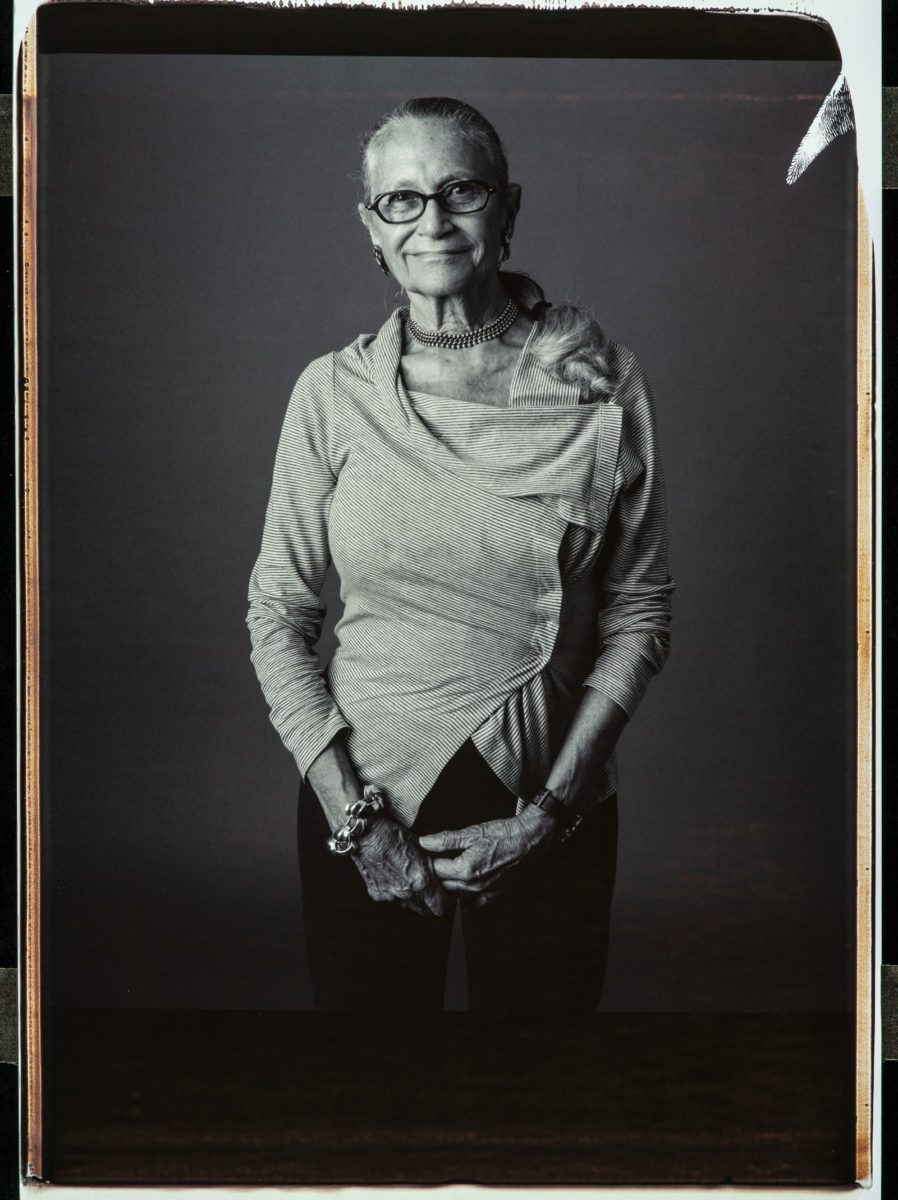
Joanne Koch. Photo by Myrna Suarez.


